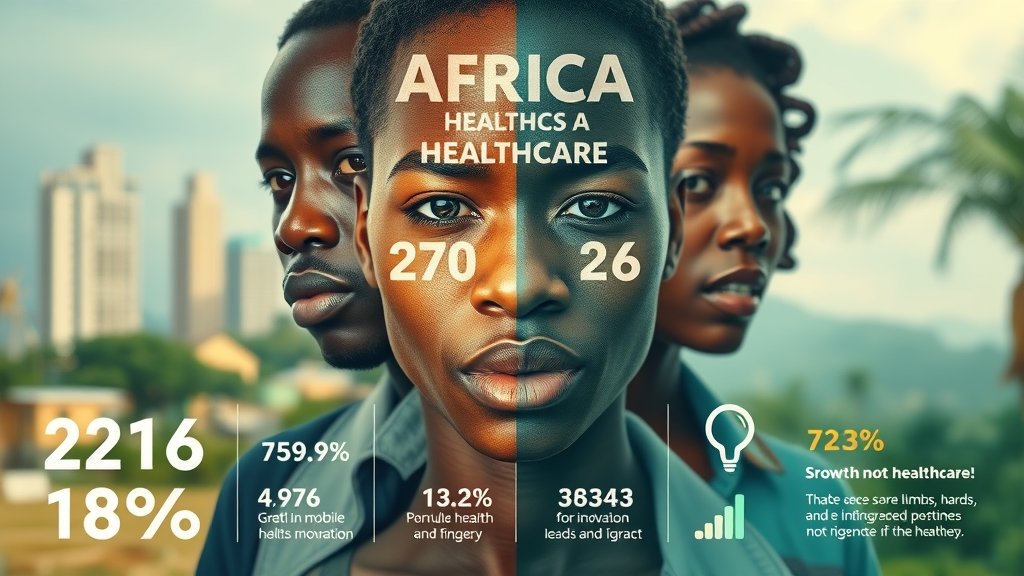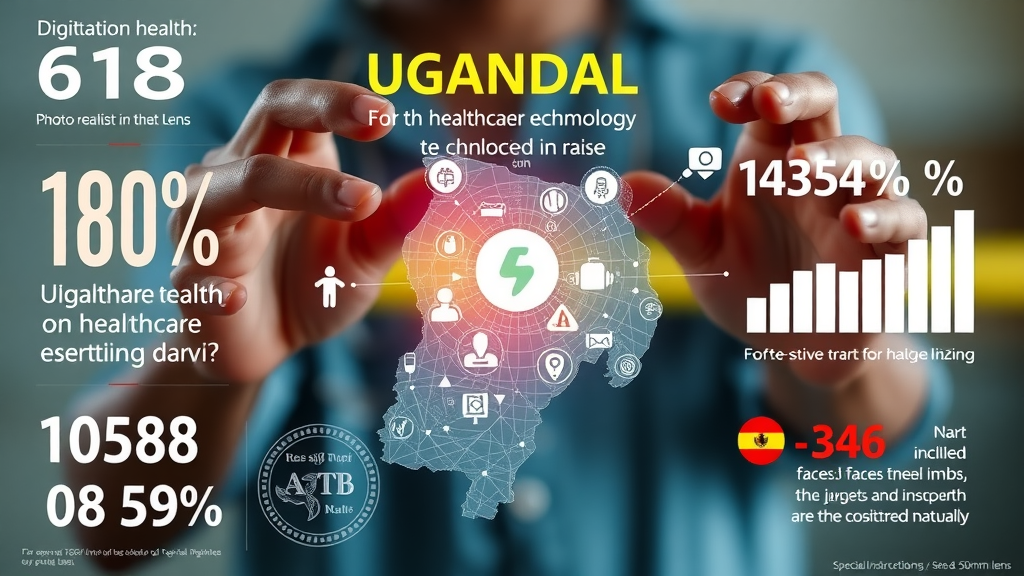Did you know: Uganda faces a healthcare worker shortage of over 70%, significantly impacting its response to crises like HIV/AIDS and COVID-19. This urgent need underscores the critical role of healthcare crisis management Uganda strategies, as exemplified by the pioneering efforts of Dr. A.K. Sebbaale and Case Medical Centre. This article dives into the lessons from Uganda’s frontlines, revealing how innovative leadership, community engagement, and technology creates resilient health systems capable of weathering severe health emergencies.
Opening with a Startling Statistic: The Urgent Need for Healthcare Crisis Management in Uganda

Uganda’s struggle with healthcare emergencies is striking. According to WHO estimates, Uganda’s doctor-to-patient ratio remains below 1:25,000, demonstrating the stark gap in accessible care during critical health crises. This shortage, combined with recurrent outbreaks such as HIV/AIDS and the COVID-19 pandemic, highlights an ongoing crisis necessitating robust healthcare crisis management Uganda frameworks. The gravity of the situation is evident not only in statistics but in daily lived experiences — from overwhelmed hospitals to overworked care workers striving tirelessly to maintain essential services.
This backdrop sets the stage for exceptional models of resilience like Case Medical Centre, where visionary leadership transforms challenges into opportunities for sustainable health care delivery.
Overview of Healthcare Crisis Management Uganda: Historical and Current Challenges
The Impact of HIV/AIDS and COVID-19 on Uganda’s Health Service
The history of Uganda’s healthcare system is deeply affected by prolonged crises, most notably HIV/AIDS, which devastated millions and strained health infrastructure through the 1980s and 1990s. This epidemic exposed critical vulnerabilities: insufficient specialized care, poor resource allocation, and lack of affordable treatment. More recently, the COVID-19 pandemic imposed new layers of complexity, forcing health systems to quickly adapt to unprecedented demand and constrained resources.
In this evolving health landscape, healthcare crisis management Uganda became a defining focus, emphasizing flexible emergency preparedness, infection control measures, and community-based interventions. Dr. A.K. Sebbaale recalls, “We didn’t close our doors during COVID. We opened more. We understood this wasn’t just a virus—it was a call to rethink how we reach people.” This statement underscores the persistent challenge and innovative spirit fueling Uganda’s adaptive health responses.
Role of Care Workers and Healthcare Workers in Managing Crises
Healthcare workers stand as Uganda’s frontline defenders in the battle against health crises. Nurses, doctors, paramedics, and community health workers tirelessly provide essential care amid overwhelming patient loads and resource shortages. Their role transcends clinical duties; they are educators, advocates, and pillars of community trust.
Effective healthcare crisis management Uganda hinges on empowering these professionals through continuous training, adequate remuneration, and mental health support. Their dedication ensures not just the treatment of illnesses but the preservation of human dignity amid adversity. This human capital remains fundamental to Uganda’s capacity to navigate and mitigate health emergencies.
Case Medical Centre: A Model of Resilient Emergency Care and Health Services
From a Small Clinic to a Leading Health Care Institution
Emerging from humble beginnings in 1995, Case Medical Centre symbolizes the transformative power of vision combined with persistence. Starting as a modest outpatient clinic on Kampala’s Bombo Road, it has evolved into a premier eight-story tertiary hospital located on Nakasero Hill. The institution now offers state-of-the-art emergency care and specialized services, reflecting an unwavering commitment to quality and accessibility.
Dr. A.K. Sebbaale’s journey embodies how determined leadership can build resilience in the face of systemic healthcare challenges. The growth of Case Medical Centre highlights a replicable path for scalable, sustainable health institutions playing crucial roles in healthcare crisis management Uganda .

Innovations in Emergency Medical and Care Services at Case Medical Centre
What distinguishes Case Medical Centre is its innovative emergency medical approaches. Rapid response mechanisms, including bicycle ambulances facilitating urgent transport in traffic-congested urban areas, improve survival rates dramatically. These adaptable, low-cost solutions align perfectly with Uganda’s unique infrastructural context.
The integration of emergency care with a comprehensive hospital service network enables Case Medical Centre to deliver timely and effective interventions, reducing patient mortality during crises. This model represents a beacon for healthcare crisis management Uganda , demonstrating scalable innovations tailored for resource-limited settings.
Expert Insights: Dr. A.K. Sebbaale on Healthcare Crisis Management Uganda
The Importance of Insurance and Financial Inclusion in Health Care
Financial barriers often prevent Ugandans from accessing needed healthcare. Dr. A.K. Sebbaale of Case Med Services Uganda emphasizes that “ the best medical care is useless if people can’t afford it. Insurance is not just about protection—it’s about inclusion.” This powerful insight drives the creation of Case MedCare Insurance, Uganda’s pioneering Health Maintenance Organization (HMO) that offers affordable, comprehensive health coverage.
By reducing out-of-pocket expenses, health insurance schemes foster equitable healthcare access and provide a safety net during emergencies. This financial inclusion is a cornerstone in strengthening Uganda’s healthcare crisis management capacity, empowering patients to seek timely care without fear of catastrophic spending.
“The best medical care is useless if people can’t afford it. Insurance is not just about protection—it’s about inclusion.” — Dr. A.K. Sebbaale, Founder and CEO of Case Medical Centre & Case MedCare Insurance
Decentralizing Health Services: Satellite Clinics and Community Care Work

Centralized hospitals can become chokepoints during public health emergencies. Recognizing this, Case Medical Centre has expanded health access via satellite clinics located in peri-urban and rural areas. These centers bring primary care, maternal health, and chronic disease management closer to underserved populations.
Decentralization reduces patient loads on central facilities and improves community trust. Local healthcare workers in these clinics become essential liaisons, fostering prevention and early intervention. This approach aligns with best practices in healthcare crisis management Uganda by enhancing accessibility and resilience at the grassroots level.
Technology as the Next Scalpel: Digital Innovations in Uganda’s Healthcare System
Telemedicine, AI Diagnostics, and Mobile Health Platforms

Emerging digital technologies are revolutionizing Uganda’s health sector. Telemedicine platforms provide remote consultations, breaking geographical barriers and supporting disease surveillance. AI diagnostics enhance accuracy and speed in identifying health conditions, while mobile health applications increase patient engagement and health literacy.
Such innovations not only improve care quality but also optimize limited resources—a critical factor in strengthening healthcare crisis management Uganda . Dr. Sebbaale envisions a future where “technology will help us reach that last mile, reduce human error, and train faster.”
Integrating Digital Systems for Health Service Efficiency and Emergency Medicine
Case Medical Centre leads efforts to digitize patient records, streamline insurance claims, and coordinate emergency responses using interconnected platforms. This integration reduces redundancy, improves monitoring, and supports data-driven decision-making during crises.
Building interoperable digital health infrastructure is essential to elevate Uganda’s emergency medicine capabilities and foster a cohesive healthcare ecosystem able to rapidly respond to future outbreaks or disasters.
Common Misconceptions and Challenges in Healthcare Crisis Management Uganda
Addressing Myths About Health Care Accessibility and Quality

There is a pervasive misconception that quality healthcare is unattainable for the majority of Ugandans or that rural populations do not deserve modern services. These myths undermine efforts to equitize health outreach and limit support for innovative programs.
Through community engagement and transparent communication, health leaders counter these falsehoods, emphasizing that high-quality care is both possible and necessary everywhere. Dispelling such myths is critical for effective healthcare crisis management Uganda .
Overcoming Resource Limitations and Workforce Challenges
Resource scarcity and workforce shortages remain pressing challenges. Sustainable solutions include training programs aimed at retaining skilled professionals, implementing task-shifting to optimize human resources, and fostering collaborations between public and private sectors to maximize impact.
Despite obstacles, Uganda’s health system continues to adapt, with leaders like Dr. Sebbaale championing innovations that address these constraints head-on and elevate crisis response capacity.
Actionable Tips for Strengthening Healthcare Crisis Management Uganda
Invest in scalable health insurance models to reduce financial barriers
Expand community-based care work and satellite clinics
Leverage technology to improve emergency medical response and health service delivery
Support continuous training and retention of healthcare workers
Foster public-private partnerships to enhance ministry of health initiatives
People Also Ask: Key Questions on Healthcare Crisis Management Uganda
What is the healthcare problem in Uganda?
Uganda faces limited healthcare resources, a high disease burden, and significant accessibility issues, which challenge the delivery of effective medical services.
What should be done to increase health care services in Uganda?
Enhancing healthcare infrastructure, investing in workforce development, and improving financing mechanisms are critical steps to expand health services.
What is a health crisis management?
Health crisis management refers to the coordinated response and strategic interventions used to minimize the impact of health emergencies on populations.
What is the status of the health care system in Uganda?
Uganda’s healthcare system shows improving trends but continues to face challenges related to coverage, quality, and resource availability.
Question |
Brief Answer |
|---|---|
What is the healthcare problem in Uganda? |
Limited resources, high disease burden, and accessibility challenges. |
What should be done to increase health care services in Uganda? |
Expand infrastructure, invest in workforce, and improve financing. |
What is a health crisis management? |
Coordinated response to health emergencies to minimize impact. |
What is the status of the health care system in Uganda? |
Improving but still facing challenges in coverage and quality. |

Key Takeaways from Dr. A.K. Sebbaale’s Vision for Uganda’s Healthcare Future
“Hope. Every patient that walks out of Case feeling better than they came in—that’s my reward. And I know we can do even more.” — Dr. A.K. Sebbaale
Dr. Sebbaale’s vision stresses the transformative power of hope, innovation, and inclusion. Under his stewardship, healthcare becomes more accessible, affordable, and resilient. His path offers a blueprint for the future of healthcare crisis management Uganda , underscoring the power of leadership grounded in empathy, innovation, and community partnership.
Conclusion: Building a Sustainable and Inclusive Healthcare System in Uganda
The Role of Leadership, Innovation, and Community Engagement
Strong leadership like Dr. Sebbaale’s, combined with scalable innovations and active community participation, forms the backbone of an effective healthcare system capable of managing crises. Prioritizing financial inclusion, digital transformation, and decentralization will ensure Uganda’s health services remain robust against future shocks.
A Call to Action for Stakeholders in Healthcare Crisis Management Uganda
All stakeholders—government entities, private sector actors, healthcare workers, and communities—must collaborate to reinforce Uganda’s healthcare infrastructure. Strategic investments, policy reforms, and inclusive approaches are vital to cement progress and safeguard public health.
Discover More About Africa’s Healthcare Innovators
Explore stories of transformative leaders like Dr. A.K. Sebbaale
Learn about innovative health care models across the continent
Stay informed on emerging technologies shaping health services
 Add Row
Add Row  Add
Add 




Write A Comment